Every year, our children learn to sing the “Four Questions”. The Haggadah is actually filled with questions for the young and old alike. Let this holiday dinner (seder) be the opportunity to let all question run free. Sometimes it’s hard to address children’s questions on abstract topics and the harder parts of our history. This is the Passover challenge.
When you’re discussing these questions, whether just with your children or with many generations and voices at the seder table, be sure to share your voice as well. The Four New Questions speak to the whole human story, adults and children alike. And then, please share your voice with us. We look forward to hearing about the new insights this discussion brings to your Passover experience.
1. What does it mean to be free?
The Hebrew word for Egypt is “Mitzrayim.” In English, it means “narrow place.” What are the narrow places in your life? How do you know when it’s time to get out?
Do you think this has anything to do with the spring cleaning that many families do in preparation for Passover? Or the new spring season that bursts out of a long winter?
For young children, the concept of “free” may mostly be related to free time and free play (when they can choose whatever activity they like as opposed to structured classroom time). You can continue the discussion by asking how those times feel different from the rest of day? Can you imagine, if you never had free play?
Older children are ready to talk about America: The Land of the Free. What kinds of things make us “free”? Free to be you and me! This is a great time to talk about tolerance and justice. Are there still slaves in the world today?
How would your life be different if you weren’t free?
What freedoms are you most grateful for?
Our ancestors were heading to Israel, the land of milk and honey. What does freedom taste like to you?
Every year we read in the Haggadah that every one of us should think of ourselves as having left Egypt. Why is it so important to remember and retell this time in our mythology?
2. What would you have taken with you out of Egypt?
AKA: What is most meaningful to you?
Imagine packing a bag of the most meaningful and important things in the world to you.
What will you pack for comfort?
What will you pack for nourishment?
What will you pack for pleasure?
What will you pack for joy?
What will you pack for memories?
This can become a study in chametz – the “puffed up” non-essentials in life.
3.Have you ever taken a leap of faith?
Not long after the Israelites finally left Egypt, the Pharaoh changed his mind and sent his army to chase them down. But that was only the beginning of this new drama. They had just reached the Sea of Reeds! How were they to cross? What would happen to them? With the Egyptian army rushing up from behind and the great Sea of Reeds spread out before them, what were they to do?
What would you do?
Here’s one legend from the Babylonian Talmud:
“When the Israelites stood by the Sea of Reeds, each tribe was unwilling to be the first to enter the sea. Then sprang forward Nachshon the son of Aminadav from the tribe of Judah and descended first into the sea… the sea saw Nachshon and fled.”
The story goes, that Nachshon, impatient and perhaps without faith in Moses, stepped into the water. Trusting that God would help them, he walked right in to the depths until it reached his chin. Then he started to pray. Words that we use in every service “Mi Kamocha ba’Elim Adonai…!” Who is like you, making wonderous miracles (now would be a good time for one. Right now!!!)… and when the water filled his mouth and he could only gargle out the prayer, then THE SEA PARTED!
A beautiful story of faith, trust, and courage.
What or who do you think gave Nachshon that courage?
Did you know that four-fifths of the the Israelite slaves stayed in Egypt? (At least according to Rashi.) Now why in the world would they do that?
Would you have left Egypt (the known/familiar) and taken a risk?
For what kinds of things do we need courage? Can you think of some examples of when you were the first person to try something new?
Describe a time when you had to do something you were scared to do, but you did it anyway.
Who are the modern day heroes and heroines that have leapt headfirst and changed the world?
What kinds of risks do we take every day?
Why is it so hard to try something new?
4. What miracles have you seen?
The Sea of Reeds parting is considered to be a magnificent miracle. One of our best! Do you believe in miracles?
A story from Exodus Rabbah:
There were maybe a million people crossing the Sea of Reeds that day. It took all night long. Two people, Reuven and Shimon were deep in the crowds moving across the land. Where the waters had parted, the earth was wet and soft. Reuven and Shimon took one look at the ground and said, “YUCK! It’s all muddy here! My sandals are getting dirty! Back in Egypt we had mud and bricks. Here it’s just mud and water. And it’s even worse! This is the wettest mud I’ve ever seen in my whole life! This is worse than Egypt!” Reuven and Shimon did not look up to witness the miracle.
What does it take for us to see a miracle?
What miracles, little and big, can we see every day if we are paying attention?
Leave a Reply
Posted in Activities for home and classroom, Holidays, Pesach





